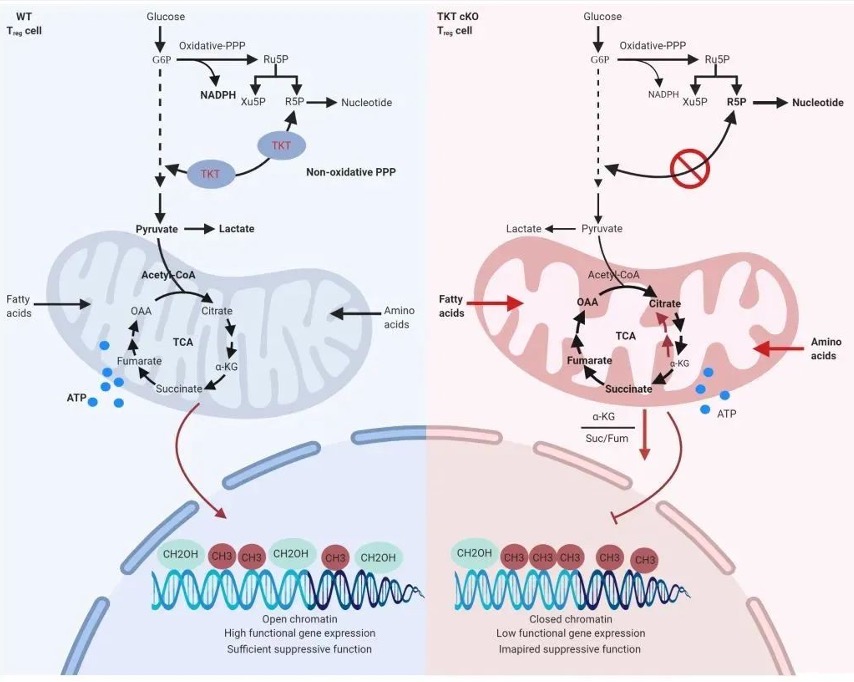
This study reveals for the first time that the non-oxidized pentose phosphate pathway (PPP) plays a key role in regulating glucose, lipid, and protein catabolism homeostasis, maintaining metabolite-dependent epigenetic modification and functional gene expression in regulatory T (Treg) cells, that is, non-oxidized PPP can control Treg cell function by integrating the metabolism of three main macronutrients and epigenetic modification. Mechanistically, reduced NADPH and enhanced oxidative stress induced by TKT deficiency in Treg cells, trigger decreased glucose oxidation into mitochondria, excessive fatty acid and amino acid catabolism, resulting in catabolic remodeling and impaired mitochondrial function. Meanwhile, the reductive TCA cycle induced by oxidative stress and mitochondrial damage reduces the ratio of α-KG/succinic acid and α-KG/fumaric acid, increasing DNA methylation, thereby inhibiting the expression of Treg cell characteristic functional genes, leading to the loss of its immunosuppressive function. This study will provide new strategies and means for preventing and treating autoimmune diseases and other immune-related diseases by regulating Treg function (Nature Metabolism,2022). Nature Metabolism also published a News & Views special comment on the study written by Dr. Margarita Dominguez-Villar of Imperial College London, suggesting that this study has identified the non-oxidative PPP as a central regulator of Treg activation and function.